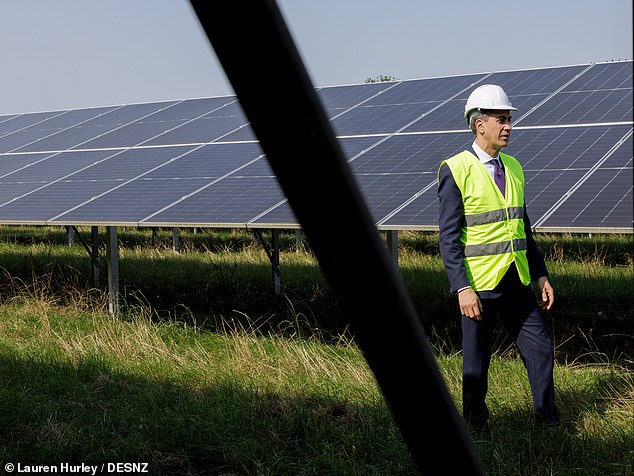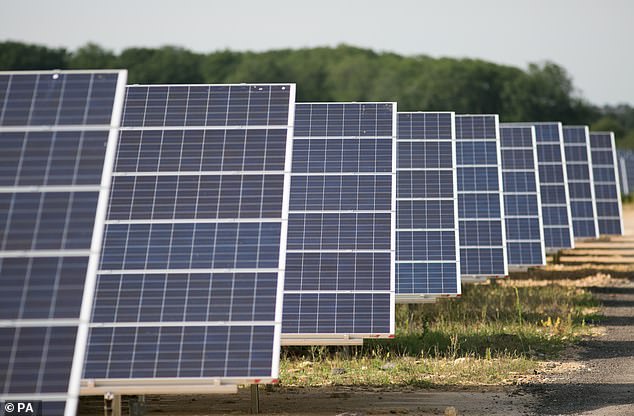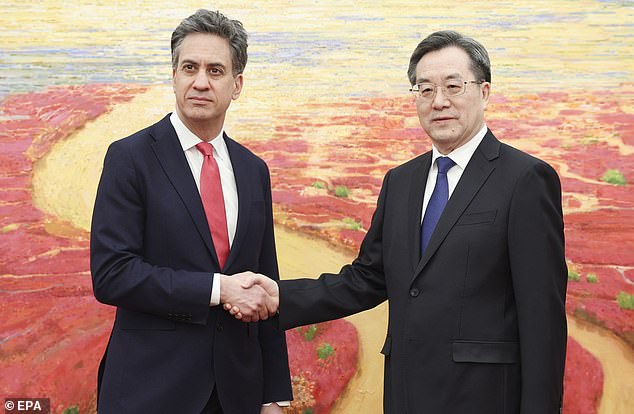Solar panels suspected to have been made by slave labour in China will no longer be allowed to be used by Britain’s state-owned energy company following a government climbdown.
In a major U-turn, energy minister Ed Miliband is set to introduce amended legislation that will require GB Energy to ensure that ‘slavery and human trafficking is not taking place’ within its supply chain.
The reversal, which could potentially threaten the Government’s ambitious Net-Zero plans, will mean that solar panels, wind turbines and batteries are not allowed to contain any materials suspected of being produced through forced labour.
It comes after the party last month instructed its MPs to block a bid to stop the Government buying solar panels feared to have been made by slaves. Members voted against an anti-slavery amendment in the Great British Energy Bill.
Despite several Labour MPs criticising the Bill, none of them rebelled when it came to a vote – though there were a number of abstentions.
Mr Miliband has said installing the panels would save the public sector money on electricity bills but conceded that some would come from China.
The country is responsible for around 80 per cent of the global supply of solar panels and the Xinjiang region produces between 35 and 40 per cent of the world’s polysilicon, a key component of the panels.

In a major U-turn, energy minister Ed Miliband (pictured) is set to introduce amended legislation that will require GB Energy to ensure that ‘slavery and human trafficking is not taking place’ within its supply chain

It comes after the party last month instructed its MPs to block a bid to stop the Government buying solar panels feared to have been made by slaves. Members voted against an anti-slavery amendment in the Great British Energy Bill

Pictured: Energy Secretary Ed Miliband, pictured with China’s vice premier Ding Xuexiang this month. He previously admitted that some solar panels bought for schools and hospitals would come from China
More than a million Uyghur people have been detained in the region and there is evidence that they are used as forced labour.
Following the vote last month, Conservative energy spokesman Andrew Bowie said it was a ‘day of shame’ for Labour after MPs voted 314 to 198 to reject the amendment.
A Government source last night told The Times that a ‘recognition of the strength of feeling’ among the 92 MPs who abstained had been noted.
It comes as campaigners have argued that up to 97 per cent of solar arrays available to buy within the UK contain materials from Xinjiang.
Describing the ban as a ‘long-overdue move’, John Flesher, of the Conservative Environment Network, asked the UK Government to ‘do more to support British and allied supply chains’.
A Department for Energy Security and Net Zero spokesman said: ‘No industry in the UK should rely on forced labour, and through Great British Energy we have a clear plan to build the supply chains needed to support a new era of clean homegrown power, bringing jobs and investment.’







